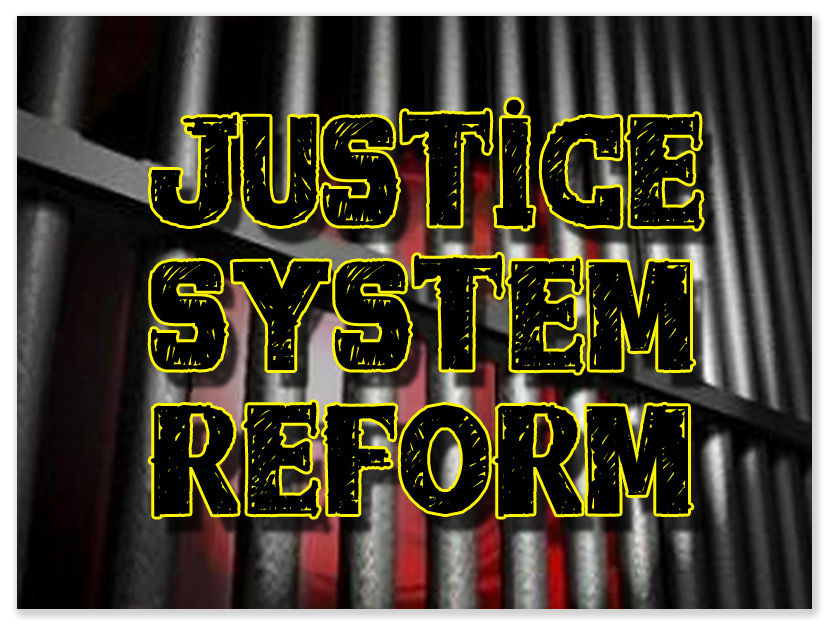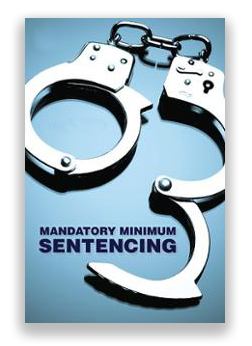We post news and comment on federal criminal justice issues, focused primarily on trial and post-conviction matters, legislative initiatives, and sentencing issues.
[Note: This story was corrected on October 25, 2021, to indicate Mark Holden is no longer Koch Industries’ senior vice president and general counsel, and to note that the Koch brother active in criminal justice reform is Charles. His late brother, David, was also a supporter of the effort]

SO WHERE ARE ALL THOSE NEW LAWS?
 With the election of President Biden and the accession of Democrats to control of Congress, some predicted the dawning of a new era of criminal justice reform. Now, with this Congress almost halfway through its two-year term and predictions of loss of Democratic control of at least one house of Congress, people what, if anything, will change.
With the election of President Biden and the accession of Democrats to control of Congress, some predicted the dawning of a new era of criminal justice reform. Now, with this Congress almost halfway through its two-year term and predictions of loss of Democratic control of at least one house of Congress, people what, if anything, will change.
Michael Correia, executive director of the National Cannabis Industry Association, told the Business Insurance Cannabis Conference last Wednesday that with “frenzied negotiations” now focused on the immediate crises of the debt ceiling and multi-trillion-dollar infrastructure legislation, legislators’ ability to address the SAFE Banking Act and the Marijuana Opportunity Reinvestment and Expungement (“MORE”) Act “is diminished simply due to time constraints.”
Still, he noted that the MORE Act, which removes marijuana from the list of controlled substances and eliminates criminal penalties for an individual who manufactures, distributes, or possesses marijuana, has passed the House.
Next year, panelists agreed, the 2022 mid-term elections will take center stage on the U.S. political scene, “potentially continuing some of the challenges of pushing cannabis higher on the legislative agenda.”
Meanwhile, while the EQUAL Act, which equalizes penalties for powder and crack cocaine, passed the House on September 28, by a vote of 361-66. But will it make it through the Senate, where negotiations on the recent George Floyd Justice reform bill – which was to make police more accountable – collapsed? Some Washington lobbyists concede it “faces an uphill battle.”
 Former Koch Industries Senior Vice President Mark Holden, who spearheaded the efforts of Charles and the late David Koch efforts on criminal justice reform, wrote last week that the EQUAL Act, by Senators Thom Tillis (R-NC) and Rob Portman (R-OH) in the Senate, and Reps. Kelly Armstrong (R-ND) and Don Bacon (R-NE) in the House, and has more than 50 bipartisan co-sponsors. He argued that supporting EQUAL Act and the First Step Implementation Act is a conservative imperative: “We must continue to establish ourselves as leaders in criminal justice reform. It is a proven political winner, judging from President Trump`s expanded GOP coalition, especially black voters, who cited his support for criminal justice reform as a reason for their vote. It is a proper platform to assert conservative principles.”
Former Koch Industries Senior Vice President Mark Holden, who spearheaded the efforts of Charles and the late David Koch efforts on criminal justice reform, wrote last week that the EQUAL Act, by Senators Thom Tillis (R-NC) and Rob Portman (R-OH) in the Senate, and Reps. Kelly Armstrong (R-ND) and Don Bacon (R-NE) in the House, and has more than 50 bipartisan co-sponsors. He argued that supporting EQUAL Act and the First Step Implementation Act is a conservative imperative: “We must continue to establish ourselves as leaders in criminal justice reform. It is a proven political winner, judging from President Trump`s expanded GOP coalition, especially black voters, who cited his support for criminal justice reform as a reason for their vote. It is a proper platform to assert conservative principles.”
At the same time, some liberals are declaring criminal justice reform dead, and blaming feckless Democrats in Congress. “Bipartisan discussions around criminal justice reform, which were already dying of neglect after months of inaction, finally collapsed last week after Republicans refused to support Democrat-proposed measures to increase police accountability,” the Daily Beast reported. “Equally to blame is the amateurish way Democrats have allowed the GOP to drive messaging around criminal justice reform in what amounts to Democratic lawmakers scaring themselves with their own shadows…Leadership, including Biden, began to visibly back away from the criminal justice reformers who make up a big chunk of the party’s activist base. That was cowardly at the time. Now that the GOP’s arguments have been shown to be nonsense, continued Democratic silence is indefensible.”
 Earlier this week, the Brennen Center for Justice provided a stark illustration of the disconnect between what the Biden Administration says and what it does:
Earlier this week, the Brennen Center for Justice provided a stark illustration of the disconnect between what the Biden Administration says and what it does:
President Biden and his attorney general have denounced mandatory minimums, as did former Attorney General Eric Holder. Even though federal prosecutors — all of whom are subject to supervision by the Department of Justice — have long been the primary proponents of mandatory minimums, Attorney General Merrick Garland affirmed this position during his confirmation hearings… However, despite Garland’s testimony, his Department of Justice has given no sign that it will stop pursuing mandatory minimums. In fact, earlier this year, Garland reinstated a 2010 Holder policy that incorporated a long-standing directive to federal prosecutors: “Where two crimes have the same statutory maximum and the same guideline range, but only one contains a mandatory minimum penalty, the one with the mandatory minimum” should be charged. To make matters worse, Garland chose not to reinstate a 2013 Holder policy that both directed prosecutors to decline to charge a mandatory minimum in “low-level, non-violent drug offenses” and explicitly acknowledged that such sentences “do not promote public safety, deterrence, and rehabilitation.”
And these are the people spearheading change? Good luck with that…
Business Insurance, Cannabis legislation progress slows (October 13, 2021)
Miami Times, Fairness in cocaine sentencing up to US Senate (October 12, 2021)
Newnan Times-Herald, Cracking the Code on Justice Reform (October 11, 2021)
Fox News, Trump made conservatives criminal justice reform leaders. Here’s how to keep it that way (October 10, 2021)
Daily Beast, Why Dems Clammed Up About Reforming a Racist Justice System (October 13, 2021)
Brennen Center, End Mandatory Minimums (October 18, 2021)
– Thomas L. Root

